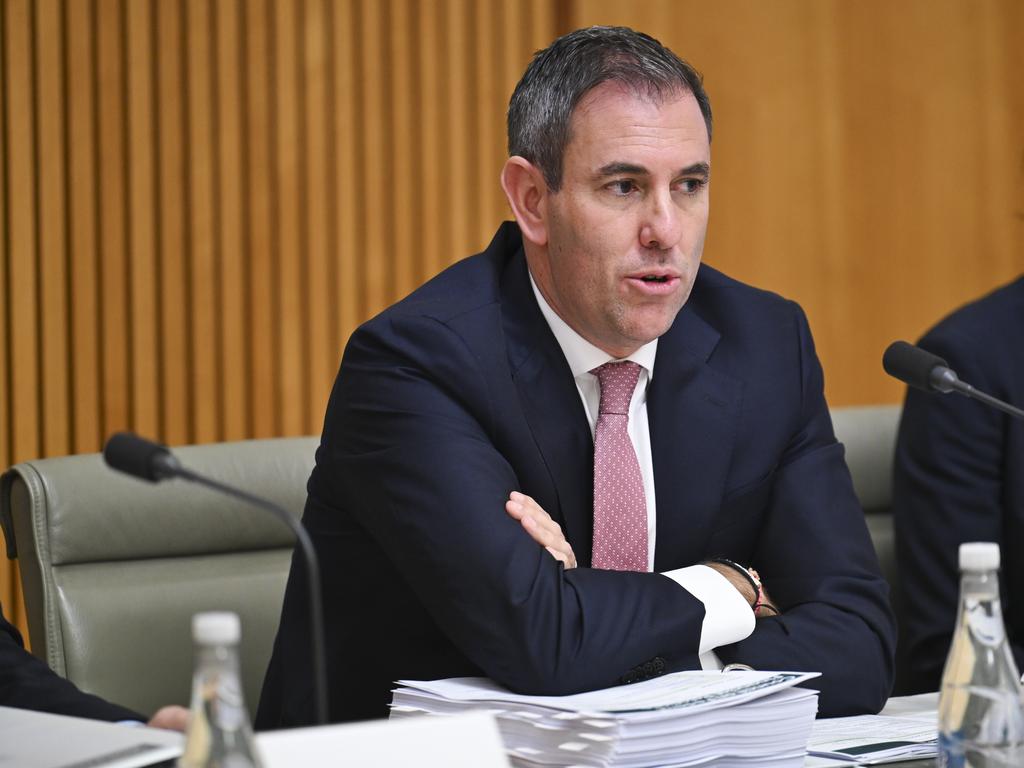Campaign battleground to focus on living standards
His efforts will be counter-productive economically, however, if they further increase the government’s economic footprint. To the contrary, he and Peter Dutton, who also is campaigning, should be setting out agendas to deal with the nation’s most serious economic challenges.
These include rising debt and a rising deficit, excessive government spending, underlying inflation and productivity that is so low it is putting living standards at risk. Band-Aid measures, including more cost-of-living handouts by government, will not be good enough.
If the Prime Minister and the Opposition Leader want to drill down to some of the root causes of the economic malaise they would do well to start with the government’s review of its Secure Jobs Better Pay legislation, brought in two years ago with two objectives: to “get wages moving again”, as former workplace relations minister Tony Burke said, and to dilute the threat of job insecurity through casualisation of the workforce.
It has achieved those objectives, albeit at a high price to the economy that is beginning to undermine the living standards of those it was designed to help. As we warned, presciently, the legislation wound back the clock on IR “to a system that was dismantled by the reforming Hawke and Keating governments as overly restrictive and a handbrake on productivity and growth that was bad for workers, business and the economy”.
That reality is confirmed in the Australian Chamber of Commerce and Industry’s submission to the government’s review. The issue of business viability is being disregarded, it argues. So is productivity relative to wage increases. The ACCI’s own survey shows that 45 per cent of small business operators considered leaving or closing their businesses in the past year.
The ACTU, predictably, is enthusiastic about Labor’s IR policies and wants them extended through 41 more changes, Ewin Hannan reports. Most seriously for small business, these would include scrapping the exemption from multi-enterprise bargaining for firms with fewer than 20 workers.
The exemption, the ACTU says, is not justified in circumstances where employees in smaller business have traditionally faced barriers in bargaining with their employers “and where multi-employer bargaining could be a far more efficient process for them”. The peak union body also wants to scrap the need to show majority worker support where an employer opposes an application.
In view of unions bankrolling Labor campaigns and exerting factional clout over MPs and policy, that push will be a significant electoral issue. The Coalition must challenge it at every turn and explain the benefits of reform.
The ACTU submission, strategically, presents a modest view of what the IR changes have brought workers. Annual wage growth has been 3.7 per cent on average since the change of government in 2022, it says, compared with 2.1 per cent under the Coalition. But many workers have done far better. The Fair Work Commission’s 2023-24 decision of a 3.75 per cent increase to modern award rates followed a 5.75 per cent hike in 2022-23.
But the size of the pay rises is not what matters. We would like to see them higher, provided they were achieved through productivity growth, one of the metrics most closely tied to quality of life and a factor in managing inflation.
Current productivity growth (0.5 per cent across the past year) needs to quadruple each year to 2030 just to match the nation’s performance last decade, which was the weakest in 60 years.
That is why living standards are falling at a faster rate than in comparable countries, with the gap between revenue and expenditure to widen as the population ages. Saving living standards needs to be front and centre of the coming campaign, with a focus on boosting productivity across the economy.




Fresh from the end of the parliamentary year, Anthony Albanese is launching election-style campaigns in battleground seats this weekend, focusing on inflation and new cost-of-living measures expected to be announced in the Mid-Year Economic and Fiscal Outlook update.